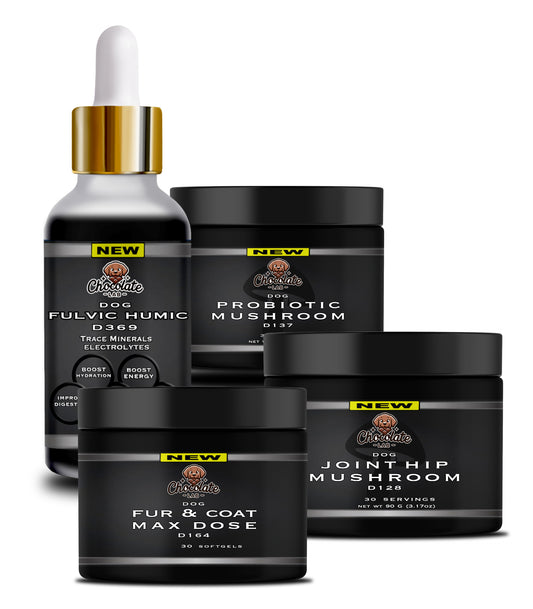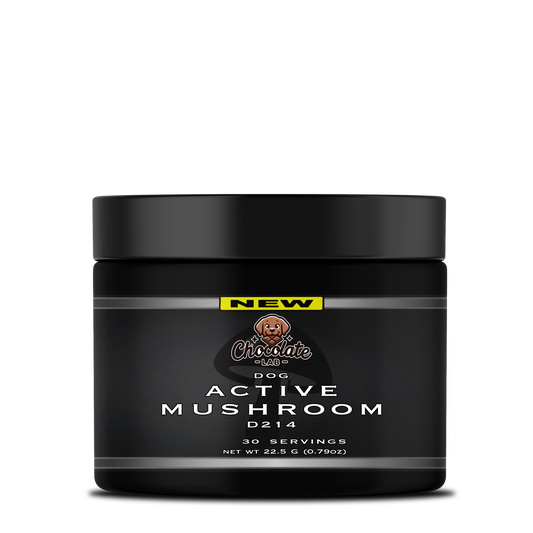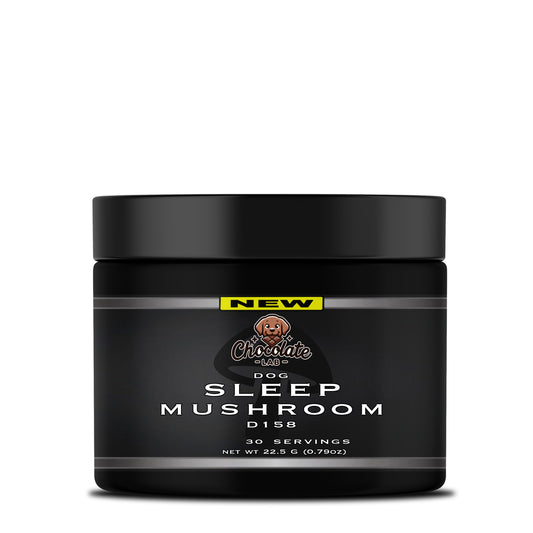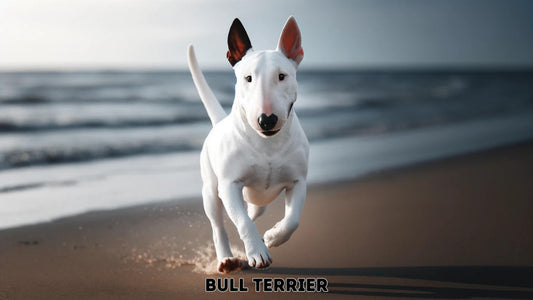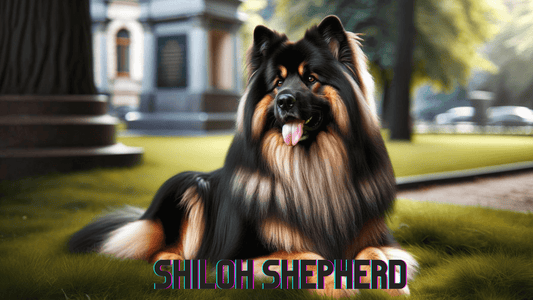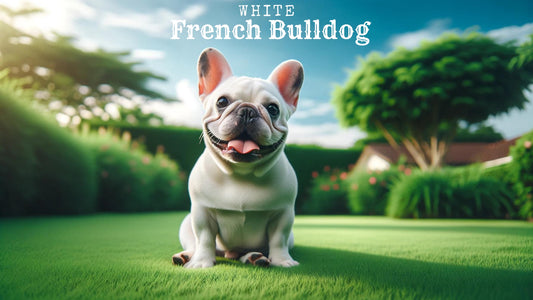Your comprehensive guide to Short-Haired Border Collies! Whether you're a proud owner or considering welcoming one of these dynamic dogs into your life, this guide is your ultimate resource. Explore every aspect of living with a Short-Haired Border Collie.

Short Haired Border Collie: Cute, Majestic & Full of Surprises!
Unveiling the Charismatic Charm: Your Comprehensive Guide to Short-Haired Border Collies in 2024
Published on 02/06/2024, 1:00 AM MST
Last Updated on 02/06/2024, 8:36 PM MST
Key Insights into Short-Haired Border Collies

| Key Term | Valuable Facts |
|---|---|
| What is a Short-Haired Border Collie? | The Short-Haired Border Collie is a variation of the Border Collie breed, distinguished primarily by its shorter coat length. This breed maintains the same intelligence, agility, and herding instincts as the standard Border Collie, but with less grooming requirements. |
| Coat Type | Short-Haired Border Collies have a distinctively shorter coat compared to their traditional long-haired counterparts. Their coat is dense and weather-resistant, providing protection in various climates. |
| Breed Characteristics | They retain the typical Border Collie features such as a well-proportioned body, strong agility, and keen intelligence. These dogs are known for their exceptional herding abilities and quick learning capacity. |
| Temperament | Short-Haired Border Collies are energetic, alert, and responsive. They are highly trainable and excel in various dog sports and activities. Their intelligence makes them a joy to train but also requires mental stimulation to prevent boredom. |
| Exercise Needs | Due to their high energy levels, they require regular, vigorous exercise. Activities like running, playing fetch, and agility training are ideal for keeping them physically and mentally fit. |
| Grooming Requirements | Their short coat is easier to maintain than the long-haired variety, but they still require regular brushing to remove loose fur and maintain coat health. |
| Health Considerations | Generally a healthy breed, but they can be prone to certain genetic conditions such as hip dysplasia and collie eye anomaly. Regular health check-ups and a well-balanced diet are important. |
| Adaptability | Short-Haired Border Collies adapt well to various living situations, but they thrive in environments where they have space to move and engage in physical activities. |
| Training and Socialization | Early training and socialization are crucial for well-rounded development. They are quick learners and respond well to positive reinforcement techniques. |
| Lifespan and Size | They have a lifespan of about 10 to 17 years and are a medium-sized breed. Males are typically larger than females. |
Table of Content
- Introduction: Understanding the Short-Haired Border Collie
- Origins and History of the Short-Haired Border Collie
- Physical Characteristics of Short-Haired Border Collies
- Temperament and Personality Traits
- Training and Exercise Requirements
- Health and Lifespan Considerations
- Grooming and Care Specifics
- Short-Haired Border Collies in Family and Social Environments
- Gender Differences: Males vs. Females
- Finding and Choosing Short-Haired Border Collie Puppies
- Unique Aspects of Short-Haired Border Collies
- Advantages and Challenges of Owning a Short-Haired Border Collie
- Costs Associated with Short-Haired Border Collies
- Conclusion: The Unique Appeal of Short-Haired Border Collies
- FAQs: Answers to Common Questions About Short-Haired Border Collies
Introduction: Understanding the Short-Haired Border Collie

The Short-Haired Border Collie stands as a remarkable symbol of versatility and intelligence in the canine world. Distinct from the traditional long-haired variety, this breed exhibits a unique blend of agility, energy, and a strong work ethic, making it a highly sought-after dog among enthusiasts and professionals alike. Renowned for their exceptional herding abilities, Short-Haired Border Collies have a rich heritage rooted in the border regions between Scotland and England. Their shorter coat sets them apart, offering a practical advantage in certain climates and activities. Despite their rugged working background, these dogs are known for their affectionate and loyal nature, making them excellent companions for active families. The breed’s adaptability to various environments, coupled with their trainable and sociable demeanor, contributes to their growing popularity. Whether in a working environment or a family home, the Short-Haired Border Collie excels, reflecting its unique position in the diverse world of herding dogs.
Key Highlights of the Short-Haired Border Collie
- Definition and Brief History: Originated in the Anglo-Scottish border region, tailored for herding and farm work.
- Physical Attributes and Personality Traits: Characterized by a short, manageable coat, high intelligence, and an energetic personality.
- Popularity and Reasons for Choosing: Favored for their low-maintenance coat, adaptability, and affectionate nature.
Visual Comparison: Short-Haired vs. Long-Haired Border Collies
| Feature | Short-Haired Border Collie | Long-Haired Border Collie |
|---|---|---|
| Coat Length | Short and smooth | Long and flowing |
| Grooming Needs | Less frequent | More demanding |
| Heat Tolerance | Generally higher | Lower due to thick coat |
| Appearance | Sleek and athletic | Fluffy and rugged |
Initial Considerations for Potential Owners
- Space Requirements: Ideal for those with ample outdoor space.
- Activity Levels: Needs significant daily exercise and mental stimulation.
- For those interested in mixed breeds that inherit the intelligence and energy of Border Collies, our piece on the Border Collie Lab Mix offers insightful information on this popular hybrid.
Origins and History of the Short-Haired Border Collie

The Short-Haired Border Collie has a rich history that intertwines with the development of sheep herding and pastoral practices in the UK. Originally bred along the Anglo-Scottish border, these dogs were valued for their exceptional herding skills, intelligence, and endurance. The breed’s evolution was driven by the need for a capable and versatile herding dog, suitable for the varied and often harsh conditions of rural Britain. The emergence of the Short-Haired variety was a natural response to these demands, offering a coat more suited to certain climates and terrains. These dogs played a crucial role in shaping agricultural practices, demonstrating an unparalleled ability to control and maneuver livestock. The transition from purely working dogs to beloved companions has seen the breed maintain its inherent traits while adapting to modern lifestyles. Their historical roles have endowed them with a unique set of skills and attributes, making them as adept in a family setting as they are in the field.
Historical Journey of the Breed
- Roots of the Border Collie Breed: Originated as a working dog for herding livestock.
- Emergence of the Short-Haired Variety: Developed for efficiency in certain climates and terrains.
- Historical Roles: Transition from purely a working dog to a versatile companion.
- Diving into the world of unique mixed breeds, our article on the Golden Retriever Chihuahua Mix explores the unlikely yet charming combination of two beloved breeds.
Timeline: Key Events in the Breed’s History
| Year | Event |
|---|---|
| 19th Century | Origin as working sheepdogs in the Anglo-Scottish border region |
| Early 20th Century | Recognition of the Border Collie as a distinct breed |
| Mid 20th Century | Emergence and increased popularity of the Short-Haired variety |
| Present Day | Widespread recognition and use in various roles beyond herding |
Physical Characteristics of Short-Haired Border Collies

Short-Haired Border Collies exhibit a range of physical characteristics that distinguish them from their long-haired counterparts. Their most notable feature is their short, dense coat, which is less prone to matting and easier to maintain. This breed typically displays a variety of coat colors and patterns, with black and white being the most common. They possess a strong, athletic build, reflective of their working heritage, which enables them to perform demanding physical tasks with ease. The breed’s expressive eyes, often conveying a keen intelligence and alertness, are another distinctive trait. Their ears can vary in shape, but are generally semi-erect, adding to their attentive appearance. Tail length can also vary, but it generally complements their balanced, agile physique. Overall, the Short-Haired Border Collie’s appearance is a harmonious blend of functionality and aesthetic appeal, perfectly suited to their active lifestyle.
Distinctive Features of the Short-Haired Border Collie
- Coat Texture, Color Patterns, and Grooming Requirements: Short coat with minimal grooming needs, available in various colors and patterns.
- Standard Sizes and Weight Range: Athletic and medium-sized build, with a typical weight range suited to their active nature.
- Distinctive Physical Features: Semi-erect ears, expressive eyes, and a tail that enhances their agile movement.
Comparison of Physical Traits with Other Border Collie Varieties
| Trait | Short-Haired Border Collie | Long-Haired Border Collie | Rough Collie |
|---|---|---|---|
| Coat | Short and dense | Long and flowing | Rough and thick |
| Grooming | Less frequent | More frequent | Regular grooming needed |
| Size | Medium | Medium | Larger |
| Ear Shape | Semi-erect | Varies | Typically erect |
Recognizing the Unique Physical Characteristics
- Observation Tips: Look for a well-balanced body, a short coat, and a keen, alert expression.
- While exploring the versatility of Border Collies, it's fascinating to compare the short-haired variety with their sleek counterparts featured in our Smooth Coat Border Collie article.
Temperament and Personality Traits

The temperament and personality of the Short-Haired Border Collie are as remarkable as their physical attributes. These dogs are known for their high intelligence, often ranked among the smartest of all dog breeds. Their keen mind, combined with their agility, makes them highly trainable and capable of performing complex tasks. Short-Haired Border Collies are also known for their loyalty and affectionate nature, forming strong bonds with their families. However, their high energy levels and need for mental stimulation mean they are best suited to active households where they can engage in regular exercise and activities. They are generally good with children and other pets, but early socialization is key to fostering well-rounded behavior. Their natural alertness makes them excellent watchdogs, always keen to protect their home and family. Understanding and managing their herding instinct is crucial, as it can manifest in chasing or nipping, especially in young dogs.
Behavioral Traits of the Short-Haired Border Collie
- Sociability and Alertness: Friendly yet protective, making great family pets and watchdogs.
- Intelligence, Trainability, and Work Ethic: Among the brightest and most trainable breeds, excelling in obedience and agility.
- Compatibility with Families and Other Pets: Generally good with children and other animals, but requires proper socialization.
Behavioral Comparison with Other Herding Breeds
| Trait | Short-Haired Border Collie | Australian Shepherd | German Shepherd |
|---|---|---|---|
| Intelligence | Very high | High | High |
| Energy Levels | Very high | High | Moderate to high |
| Trainability | Excellent | Very good | Very good |
| Sociability | Good with training | Friendly | Loyal but reserved |
Fostering a Balanced Temperament
- Training Tips: Engage in consistent, positive reinforcement training methods.
- The elegance and distinct appearance of the English Cream Dachshund are celebrated in our article, showcasing this special variation of the classic Dachshund breed.
Training and Exercise Requirements

The training and exercise requirements for a Short-Haired Border Collie cannot be understated. These dogs are not only physically active but also mentally sharp, requiring regular physical and mental stimulation. A lack of proper exercise can lead to behavioral issues such as excessive barking, digging, or herding behavior. Training should start early, utilizing their intelligence and eagerness to learn. Activities like agility training, obedience exercises, and interactive play are excellent for keeping them engaged. They thrive in environments where they can run, explore, and play, making them ideal for owners who lead an active lifestyle or have access to outdoor spaces. Mental stimulation is equally important; puzzle toys, training sessions, and new challenges help keep their minds sharp. Consistency in training and exercise routines is key to ensuring a well-behaved, happy Short-Haired Border Collie.
Effective Training Methods and Exercise Needs
- Training Techniques: Positive reinforcement and consistency are crucial in training.
- Exercise Needs: Requires ample daily exercise, including walks, runs, and playtime.
- Mental Stimulation Strategies: Engage them with puzzle toys, training games, and agility courses.
Training and Exercise Essentials for Border Collie Short-Haired
| Aspect | Description | Frequency | Duration | Tips |
|---|---|---|---|---|
| Daily Walks | Essential for physical exercise and mental stimulation. | Daily | 30-60 minutes | Use a harness for better control. |
| Agility Training | Enhances their natural agility and intelligence. | 2-3 times/week | 30-45 minutes | Start with basic obstacles. |
| Mental Stimulation | Puzzle games and training sessions to keep their mind active. | Daily | 20-30 minutes | Rotate toys to maintain interest. |
| Herding Activities | Taps into their natural herding instincts. | Weekly | 1-2 hours | Supervised in a safe, enclosed area. |
| Playtime | Interactive play with toys and family members. | Daily | 20-30 minutes | Encourage fetch and chase games. |
Engaging Exercise Ideas
- Activity Suggestions: Incorporate activities like fetch, hiking, and agility sports.
- Delve into the vibrant world of Poodles with our article on the Red Toy Poodle, a color and size variation that captures hearts with its charm and intelligence.
Health and Lifespan Considerations

When it comes to health and lifespan, the Short-Haired Border Collie is generally a robust and healthy breed, often living between 12 to 15 years. Like all breeds, they are prone to certain health conditions, such as hip dysplasia, eye problems, and epilepsy. Regular veterinary check-ups and a healthy lifestyle can significantly reduce the risk of these issues. A balanced diet, adequate exercise, and mental stimulation are essential in maintaining their overall health. It’s important for owners to be aware of the signs of common health issues and seek veterinary care promptly. Genetic testing and responsible breeding practices are also vital in minimizing health risks. Vaccinations, flea and tick prevention, and regular deworming are crucial parts of their healthcare routine. A well-cared-for Short-Haired Border Collie can enjoy a long, happy, and active life with their family.
Common Health Conditions
- Hip Dysplasia: A genetic condition that can affect the dog's mobility and comfort.
- Eye Problems: Including conditions like Collie eye anomaly and progressive retinal atrophy.
- Epilepsy: A neurological disorder that can cause seizures.
Lifespan and Influencing Factors
- Genetics: A significant factor in the dog's overall health and longevity. Choosing puppies from responsible breeders who perform genetic testing can help minimize the risk of hereditary conditions.
- Lifestyle: Adequate exercise, mental stimulation, and a balanced diet are crucial for their well-being.
- Preventive Healthcare: Regular veterinary check-ups, vaccinations, flea and tick prevention, and deworming play a vital role in preventing common health issues and extending their lifespan.
To ensure your Short-Haired Border Collie enjoys a fulfilling life, it's essential to:
- Be proactive about their health by scheduling regular veterinary visits for early detection and treatment of potential issues.
- Provide a well-rounded diet tailored to their age, size, and energy level.
- Engage them in regular physical activity and mental challenges to keep them fit and mentally sharp.
- Familiarize yourself with the signs of common health problems specific to the breed and seek veterinary attention promptly when concerns arise.
Health Risk Comparison with Other Collie Breeds
| Health Issue | Short-Haired Border Collie | Long-Haired Border Collie | Rough Collie |
|---|---|---|---|
| Hip Dysplasia | Moderate risk | Moderate risk | High risk |
| Eye Problems | Moderate risk | High risk | Moderate to high risk |
| Epilepsy | Low to moderate risk | Moderate risk | Low to moderate risk |
Quick Tips: Maintaining Optimal Health
- Regular Exercise: Keep them active to maintain physical health.
- Balanced Diet: Provide a nutritious diet appropriate for their age and activity level.
- Routine Check-Ups: Regular vet visits for early detection of health issues.
- Mental Well-being: Engage in activities that stimulate their mind.
- Genetic Testing: Consider genetic testing for known breed-specific conditions.
- Preventive Care: Stay up-to-date with vaccinations and parasite control.
- Explore the colorful patterns and personality of the Parti Poodle through our detailed article, highlighting this unique and eye-catching variation.
Grooming and Care Specifics

Grooming and care are essential aspects of maintaining the health and well-being of a Short-Haired Border Collie. Their short coat is easier to maintain than that of their long-haired counterparts, requiring regular brushing to remove loose fur and minimize shedding. Bathing should be done as needed, depending on their level of outdoor activity and exposure to dirt. It’s important to pay attention to their nails, ears, and teeth as well, ensuring they are clean and well-maintained. A balanced diet plays a vital role in keeping their coat healthy and shiny. Routine health check-ups, including dental care, are crucial in preventing common health problems. Owners should also be aware of their dog’s specific nutritional needs, which can vary based on age, activity level, and health status. Regular, attentive care will keep a Short-Haired Border Collie looking and feeling their best.
Essentials of Grooming and Nutrition
1. Grooming Needs:
- Regular Brushing: Aim for once or twice a week to remove loose fur and minimize shedding. This helps maintain a healthy and shiny coat.
- As-Needed Bathing: Bathing should be based on their level of activity and exposure to dirt. For most, a bath every few months is sufficient, unless they get particularly dirty from outdoor activities.
2. Nutritional Requirements:
- Balanced Diet: It's important to provide a diet that meets their specific nutritional needs, which can vary based on their age, activity level, and any health concerns. High-quality dog food that supports their energy requirements is essential.
- Tailored to Life Stage and Activity Level: Puppies, adults, and senior dogs have different dietary needs. Likewise, a highly active dog will require more calories than a more sedentary one.
3. Routine Care:
- Nail Trimming: Regular nail trims are necessary to prevent discomfort and potential problems with walking. This might need to be done monthly or as needed.
- Ear Cleaning: Clean their ears regularly to prevent infections, especially if they are prone to getting dirty or wet.
- Dental Hygiene: Regular dental care, including brushing and professional cleanings, can prevent dental disease, which is common in dogs.
Grooming Requirements for Border Collie Short-Haired
| Activity | Purpose | Frequency | Tools Needed | Tips |
|---|---|---|---|---|
| Brushing | Removes loose fur and prevents matting. | Weekly | Grooming brush, de-shedding tool | Be gentle to avoid skin irritation. |
| Bathing | Keeps the coat clean and healthy. | Monthly or as needed | Dog shampoo, towels | Use lukewarm water and thoroughly rinse. |
| Nail Trimming | Prevents overgrowth and discomfort. | Monthly | Nail clippers, styptic powder | Trim gradually to avoid cutting the quick. |
| Ear Cleaning | Prevents infections and wax buildup. | Bi-weekly | Ear cleaner, cotton balls | Never insert anything deep into the ear canal. |
| Dental Care | Maintains oral health and prevents diseases. | Daily | Dog toothbrush, canine toothpaste | Introduce slowly to get them comfortable. |
Quick Tips: Effective Care Practices
- Regular Brushing: Helps to reduce shedding and keep the coat healthy.
- Appropriate Bathing: Avoid over-bathing to maintain natural skin oils.
- Nail Care: Regular trimming to prevent discomfort and mobility issues.
- Ear and Dental Hygiene: Prevent infections and dental diseases.
- Customized Diet: Adjust their diet to suit their individual health needs.
- Routine Vet Visits: Essential for early detection and prevention of health issues.
- Our Corgi Poodle Mix article introduces readers to this adorable and intelligent hybrid, blending the best traits of both parent breeds.
Short-Haired Border Collies in Family and Social Environments

Short-Haired Border Collies are known for their adaptability and sociability, making them great companions in family and social environments. They are typically friendly and affectionate, enjoying the company of their human families and often getting along well with other pets. Early socialization is key to ensuring they are comfortable and well-behaved around new people, pets, and in different environments. Their intelligence and eagerness to please make them responsive to training, which can help in managing their herding instincts, particularly around children. They are known to be protective of their family, which coupled with their alertness, makes them excellent watchdogs. As with any breed, it’s important to supervise interactions between dogs and young children to ensure safety for both. Their ability to adapt to different social settings makes them a versatile companion, equally suited to a quiet evening at home or an outdoor family adventure.
Family Interaction and Social Behavior
- Family Compatibility: Affectionate and loyal, great with families.
- Behavior in Social Settings: Friendly and adaptable, but requires early socialization.
- Socialization Techniques: Exposure to different people, pets, and environments.
Family Compatibility Rating
| Aspect | Rating (1-5) |
|---|---|
| Kid-Friendliness | 4 |
| Pet-Friendliness | 4 |
| Adaptability to Social Settings | 4 |
| Trainability | 5 |
Quick Tips: Social Integration and Safety
- Early Socialization: Introduce them to various environments and people.
- Training for Social Behavior: Teach them appropriate behavior around guests and other animals.
- Supervised Interactions: Always supervise interactions with children and other pets.
- Understanding Herding Behavior: Be aware of their natural instincts and manage them appropriately.
- Creating a Safe Environment: Ensure a safe space for them to retreat to when overwhelmed.
- Consistent Training: Maintain consistent rules and boundaries for social behavior.
- For a closer look at one of the most popular designer breeds, our Toy Aussiedoodle article discusses the characteristics, care, and companionship of these delightful dogs.
Gender Differences: Males vs. Females

Understanding the gender differences between male and female Short-Haired Border Collies can be crucial for prospective owners. Males typically are slightly larger and more muscular than females, which may influence their physical activity and exercise needs. Behavioral nuances can also be observed; males tend to be more dominant and territorial, while females might be more reserved and nurturing. These differences can affect training and socialization strategies. When it comes to breeding, it’s important to consider the implications of spaying or neutering, as this can impact behavior and health. While each dog is an individual with its unique personality, these general tendencies can provide helpful insights for owners in making informed decisions about which gender might be best suited to their household and lifestyle.
Physical and Behavioral Traits by Gender
- Behavioral Differences: Males are often more dominant, females more nurturing.
- Physical Distinctions: Males are generally larger and more robust.
Comparative Analysis of Male and Female Traits
| Trait | Male Short-Haired Border Collie | Female Short-Haired Border Collie |
|---|---|---|
| Size | Slightly larger and muscular | Smaller and more refined |
| Behavior | More dominant and territorial | More reserved and nurturing |
| Training Response | May require more assertive training | Often more responsive to training |
Quick Tips: Choosing Between Male and Female
- Consider Household Dynamics: Evaluate which gender fits best with your family structure and lifestyle.
- Understand Behavioral Tendencies: Be aware of the general behavioral differences between males and females.
- Training Needs: Adapt your training approach based on the dog’s gender and individual personality.
- Health Considerations: Discuss the health implications of spaying or neutering with your vet.
- Personal Preference: Ultimately, choose based on your personal connection and preference for either gender.
- Compatibility with Other Pets: Consider the existing dynamics with other pets when choosing a gender.
- Curious about Labradoodles? Our 'What is a Labradoodle?' article answers all your questions, from their origins to why they've become such favored companions.
Finding and Choosing Short-Haired Border Collie Puppies

When it comes to finding and choosing Short-Haired Border Collie puppies, it’s crucial to do thorough research and select a responsible breeder or rescue center. A reputable breeder should prioritize the health and temperament of their dogs, and be transparent about their breeding practices. It’s important to visit the breeding facility, meet the puppy’s parents, and observe the environment in which the puppies are raised. Look for signs of good health in the puppies, such as clear eyes, clean ears, and a playful demeanor. Avoid breeders who seem to prioritize quantity over quality or show signs of running a puppy mill. When considering adoption from a rescue, inquire about the dog’s history, health, and temperament. Adopting a puppy is a long-term commitment, so ensure that the puppy you choose is a good fit for your lifestyle and family.
Guidelines for Selecting a Puppy
1. Reputable Breeders and Rescue Centers:
- Conduct thorough research to find breeders or rescue centers with a good reputation. Look for reviews, ask for references, and consider their standing with breed clubs or kennel clubs.
- A responsible breeder will be knowledgeable about the breed and eager to discuss their breeding practices, including the genetic testing done to prevent hereditary conditions.
2. Red Flags in Breeding Practices:
- Be wary of breeders who have multiple litters available simultaneously or seem to be continuously breeding their dogs. This can be a sign of a puppy mill, where profit is prioritized over the well-being of the dogs.
- Avoid breeders who are unwilling to let you visit their facility or meet the puppy's parents, as this transparency is key in assessing the conditions in which the puppies are raised.
3. Health Certifications and Vaccinations:
- Ensure that the puppy has been examined by a veterinarian, received necessary vaccinations, and comes with health certifications, especially for common genetic conditions in the breed like hip dysplasia and eye problems.
- A reputable breeder or rescue should provide documentation of the puppy's health checks and the health history of the parents.
4. Observation and Interaction:
- When visiting a breeder or rescue, observe the puppy's behavior, environment, and interaction with siblings and humans. Look for puppies that are playful, confident, and show no signs of fear or aggression.
- Healthy puppies should have clear eyes, clean ears, and no signs of diarrhea or skin issues. Their living conditions should be clean, safe, and well-maintained.
5. Compatibility with Your Lifestyle:
- Consider the puppy's temperament and energy level in relation to your lifestyle and experience with dogs. Short-Haired Border Collies are highly energetic and intelligent, requiring ample exercise and mental stimulation.
Checklist for Evaluating Breeders and Puppies
| Criteria | Importance |
|---|---|
| Health Clearances | Essential |
| Breeding Environment | Very Important |
| Temperament of Parents | Important |
| Vaccination and Medical History | Essential |
Quick Tips: Responsible Puppy Selection
- Visit the Breeding Facility: Observe the conditions and how the puppies interact.
- Meet the Puppy’s Parents: Look for temperament and health traits.
- Health Records: Check for vaccinations and any genetic testing.
- Ask Questions: Inquire about the puppy’s diet, socialization, and any special care.
- Consider Personality: Choose a puppy whose temperament suits your lifestyle.
- Adoption Option: Explore rescue centers for adoptable puppies.
- The Parti Yorkie, with its unique coat colors, is the star of our article, offering a deep dive into the breed's history, care, and how they stand out from their Yorkie brethren.
Unique Aspects of Short-Haired Border Collies

Short-Haired Border Collies stand out with some unique aspects and capabilities that differentiate them from other breeds. Their short coat is not only a distinctive physical trait but also offers practical benefits in terms of maintenance and adaptability to different climates. They are renowned for their high intelligence, often being capable of learning complex commands and tasks quickly. This breed is also known for its exceptional agility and speed, making them top contenders in dog sports like agility and flyball. Their herding instinct is strong, yet they can adapt well to various roles, including search and rescue, and as therapy dogs. The Short-Haired Border Collie’s versatility, coupled with their loyal and affectionate nature, makes them excellent companions for active individuals and families.
Distinctive Characteristics and Skills
- Unique Physical and Behavioral Traits: Short coat, high intelligence, and agility.
- Breed Comparison: Distinguished from other collies and herding dogs by their coat and versatility.
- Notable Aptitudes: Excelling in agility, obedience, and herding.
Summary of Unique Breed Traits
| Trait | Description |
|---|---|
| Coat | Short, requiring less grooming |
| Intelligence | High, quick to learn |
| Agility | Excellent, suitable for dog sports |
| Adaptability | Versatile in various roles |
Quick Tips: Embracing Their Uniqueness
- Engage in Agility Training: Utilize their natural speed and agility.
- Mental Stimulation: Provide challenging games and training sessions.
- Versatility: Explore various activities to keep them engaged.
- Regular Grooming: Maintain their coat with regular brushing.
- Socialization: Expose them to different environments and people.
- Health Maintenance: Regular vet check-ups and a balanced diet.
Advantages and Challenges of Owning a Short-Haired Border Collie

Owning a Short-Haired Border Collie comes with its own set of advantages and challenges. On the plus side, their intelligence and trainability make them exceptional companions for activities and tasks. Their affectionate nature and loyalty endear them to families, and their adaptability makes them suitable for various living situations. However, potential owners must be prepared for the challenges. These include their high energy levels, which require significant time commitment for exercise and mental stimulation. Their herding instinct can sometimes lead to unwanted chasing behaviors, and without proper training, they can become overly shy or aggressive. Understanding these aspects is key to ensuring a happy and healthy relationship with your Short-Haired Border Collie.
Pros and Cons of Short-Haired Border Collie Ownership
- Benefits: Intelligence, trainability, and affectionate nature.
- Challenges: High energy, herding instinct, and need for mental stimulation.
Pros and Cons Comparison
| Aspect | Advantage | Challenge |
|---|---|---|
| Intelligence | High trainability | Requires mental stimulation |
| Energy | Active and playful | Needs substantial exercise |
| Temperament | Loyal and affectionate | Can develop herding behaviors |
Quick Tips: Managing the Challenges
- Regular Exercise: Plan daily exercise routines.
- Training: Invest in regular and consistent training.
- Mental Stimulation: Provide puzzle toys and learning games.
- Herding Instinct: Manage with training and redirection.
- Routine Health Care: Keep up with veterinary check-ups and vaccinations.
- Socialization: Expose them to different people and situations.
Costs Associated with Short-Haired Border Collies

Understanding the costs associated with owning a Short-Haired Border Collie is essential for prospective owners. Initial costs include the purchase or adoption fee, initial veterinary care, and necessary supplies like a collar, leash, and crate. Ongoing expenses include food, grooming supplies, regular veterinary check-ups, vaccinations, and potential health care costs. It’s also important to consider costs for training classes, doggy daycare, or pet sitters, especially for owners who work long hours. Emergency medical care, though hopefully not needed, can also be a significant expense. Budgeting for these expenses is crucial in ensuring that you can provide the best care for your Short-Haired Border Collie throughout their life.
Breakdown of Ownership Costs
- Initial Expenses: Purchase or adoption fees, initial vet visits.
- Ongoing Costs: Food, grooming, regular veterinary care.
- Potential Extra Expenses: Training, daycare, emergency health care.
Cost Analysis for Owning a Border Collie Short-Haired
| Expense Type | Initial Cost | Monthly Cost | Annual Cost | Notes |
|---|---|---|---|---|
| Purchase/Adoption | $300 - $1200 | - | - | Varies by breeder or rescue. |
| Food | - | $30 - $60 | $360 - $720 | Depends on brand and diet type. |
| Veterinary Care | $100 - $300 | - | $200 - $500 | Includes vaccinations, check-ups. |
| Grooming Supplies | $50 - $100 | $10 - $20 | $120 - $240 | Brushes, shampoos, nail clippers. |
| Training Classes | $50 - $200 per session | - | $300 - $600 | Based on the frequency of classes. |
| Miscellaneous (Toys, Bed, Crate) | $100 - $300 | - | $50 - $100 | Replacement and additional items. |
Quick Tips: Budgeting and Cost Management
- Plan for Initial Costs: Save for the initial set-up and veterinary care.
- Monthly Budgeting: Allocate a monthly budget for food and routine care.
- Emergency Fund: Set aside funds for unexpected medical expenses.
- Cost-Saving Strategies: Look for affordable training options and DIY grooming.
- Regular Health Checks: Preventive care can save costs in the long run.
- Quality Food: Invest in good nutrition to avoid future health issues.
Conclusion: The Unique Appeal of Short-Haired Border Collies

In conclusion, the Short-Haired Border Collie is a breed with a unique appeal, combining intelligence, agility, and a loving temperament. They are adaptable to various lifestyles, making them ideal companions for active individuals and families. Their low-maintenance coat and manageable grooming needs add to their practicality as pets. The joy and companionship they bring to their owners’ lives are unparalleled, making the commitment of time, training, and care well worth it. Whether as working dogs, competitive sports partners, or family pets, Short-Haired Border Collies leave a lasting impact on the lives they touch.
Recap of Their Desirability as Companions
- Companionship and Versatility: Ideal for various lifestyles.
- Low-Maintenance Grooming: Easier grooming requirements.
- Impact on Lifestyle: Bring joy and active engagement.
Summary of Key Points Discussed
| Aspect | Summary |
|---|---|
| Physical Traits | Short coat, athletic build |
| Temperament | Intelligent, affectionate, energetic |
| Training | Highly trainable, needs mental stimulation |
| Health and Care | Generally healthy, requires regular care |
| Costs | Consider the financial commitment |
Quick Tips: Final Considerations for Prospective Owners
- Assess Lifestyle Compatibility: Ensure your lifestyle suits their needs.
- Training Commitment: Be prepared for ongoing training and mental stimulation.
- Health Care Planning: Budget for regular and potential health care needs.
- Exercise Requirements: Plan for daily physical activity.
- Long-Term Commitment: Understand the commitment of owning a Short-Haired Border Collie.
- Research and Preparation: Thoroughly research and prepare before bringing one home.
FAQs: Answers to Common Questions About Short-Haired Border Collies

This section aims to address the frequently asked questions about Short-Haired Border Collies, providing concise and informative answers. Covering a range of topics from care, behavior, health, and ownership, these FAQs serve as a quick reference for both prospective and current owners. Whether you’re considering bringing a Short-Haired Border Collie into your home or seeking to better understand and care for your pet, these answers will offer valuable insights.
Top 15 Questions About Short-Haired Border Collies
| Question | Answer |
|---|---|
| What is the typical lifespan of a Border Collie Short-Haired? | They generally live between 12 to 15 years, depending on their health and lifestyle. |
| How much exercise does a Border Collie Short-Haired require? | Significant daily exercise, including walks, play, and mental challenges, is essential for their well-being. |
| Are Border Collie Short-Haired dogs good with children? | Yes, when properly socialized and trained, they are typically great with children. |
| How intelligent is the Border Collie Short-Haired breed? | They are highly intelligent, known for their quick learning ability and responsiveness to training. |
| What common health issues should I be aware of in Border Collie Short-Haired dogs? | Common issues include hip dysplasia, eye problems, and epilepsy, but regular health checks can help manage these risks. |
| Is the Border Collie Short-Haired suitable for first-time dog owners? | They can be a challenge for first-timers due to their high energy and intelligence, requiring consistent training and exercise. |
| What are the grooming needs of a Border Collie Short-Haired? | They require regular brushing, occasional baths, and general care like nail trimming and ear cleaning. |
| Can Border Collie Short-Haired dogs adapt to apartment living? | While they prefer more space, they can adapt to apartment living if sufficiently exercised and mentally stimulated. |
| Are Border Collie Short-Haired dogs prone to any specific behavioral issues? | Without proper exercise and mental stimulation, they may develop behaviors like excessive barking or herding tendencies. |
| How do Border Collie Short-Haired dogs fare in cold weather? | Their short coat provides some protection, but they may need extra warmth in colder climates. |
| What type of diet is best for a Border Collie Short-Haired? | A balanced diet suited to their age, size, and activity level is ideal. Consult a vet for specific recommendations. |
| Are Border Collie Short-Haired dogs easy to train? | Yes, their intelligence and eagerness to please make them relatively easy to train. |
| How often should I take my Border Collie Short-Haired to the vet? | Regular annual check-ups are recommended, along with any additional visits for health concerns or vaccinations. |
| What activities do Border Collie Short-Haired dogs enjoy? | They enjoy activities like agility, fetch, herding trials, and interactive play that challenge them physically and mentally. |
| Can Border Collie Short-Haired dogs live comfortably with other pets? | Yes, especially if raised together or properly socialized from a young age. |


























